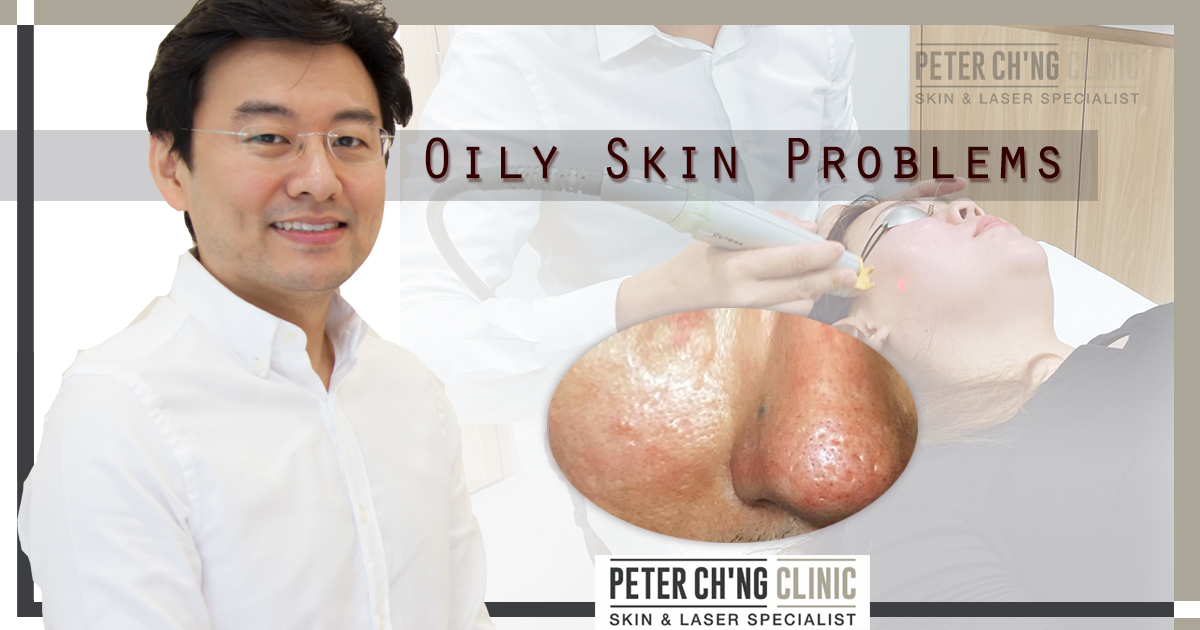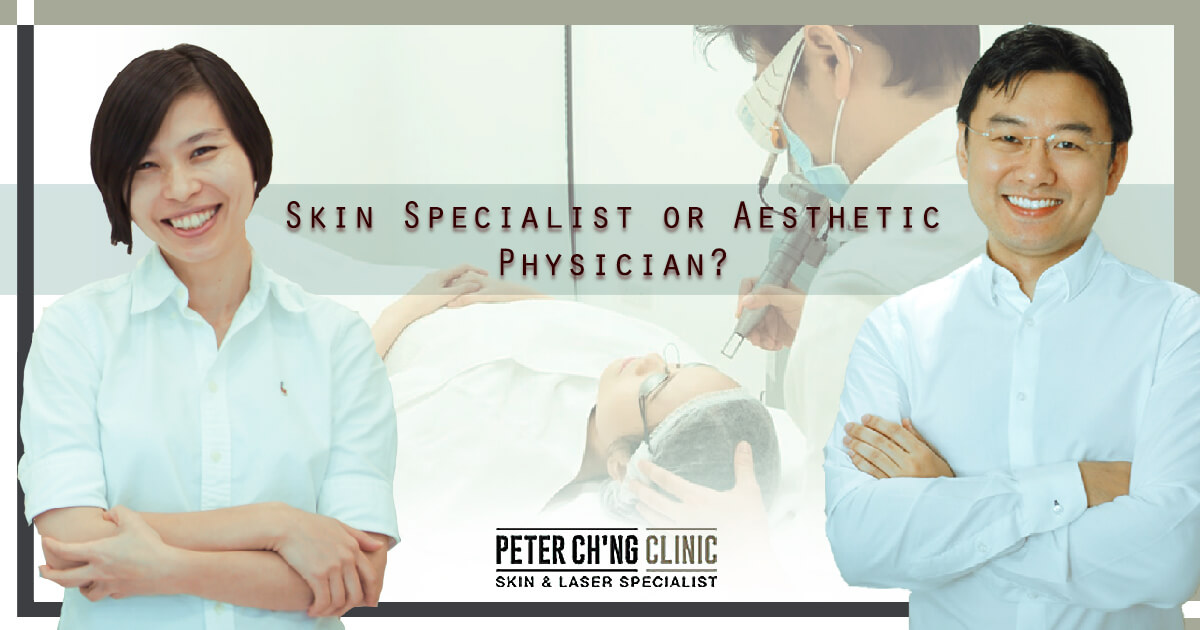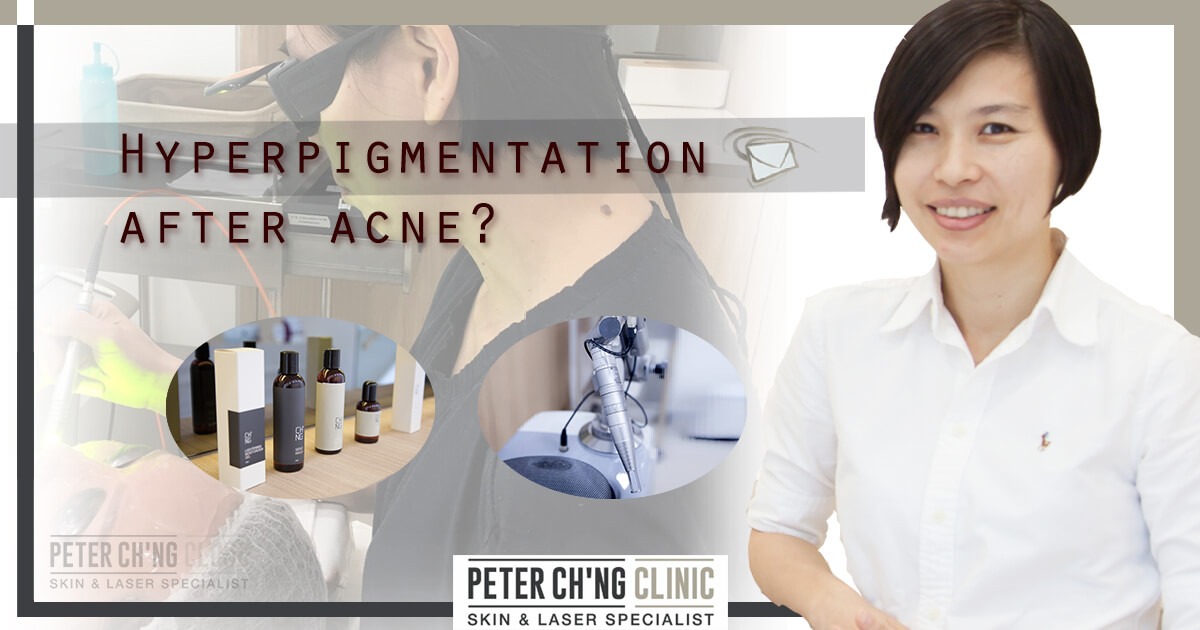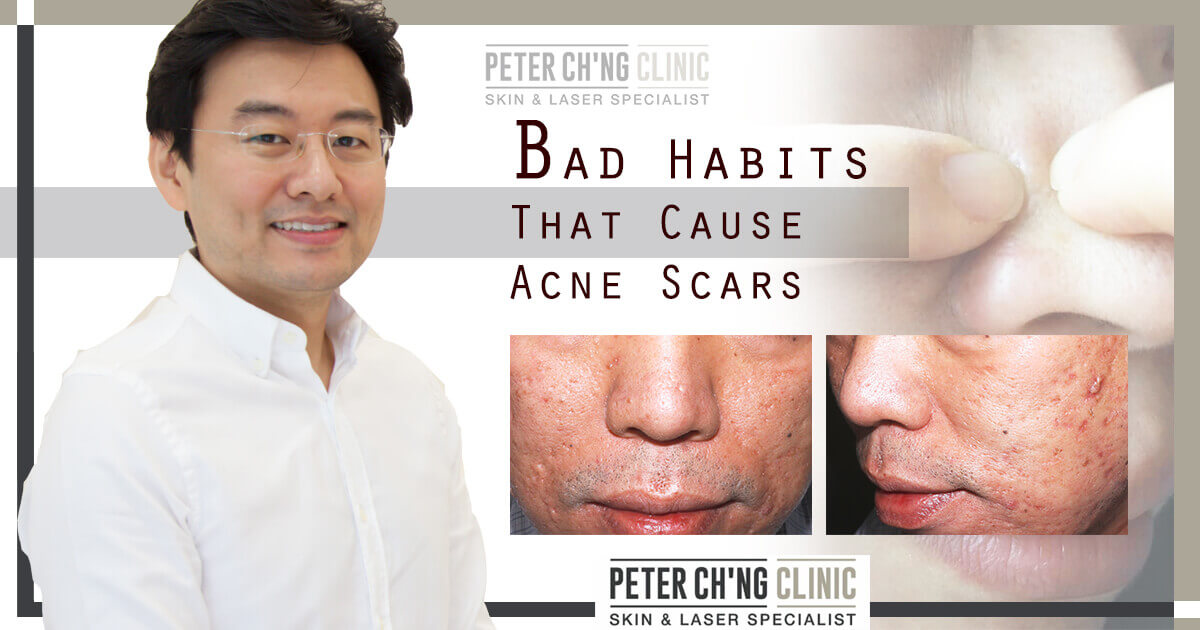Patient Mailbox: How To Look After Your Skin Health During Covid-19
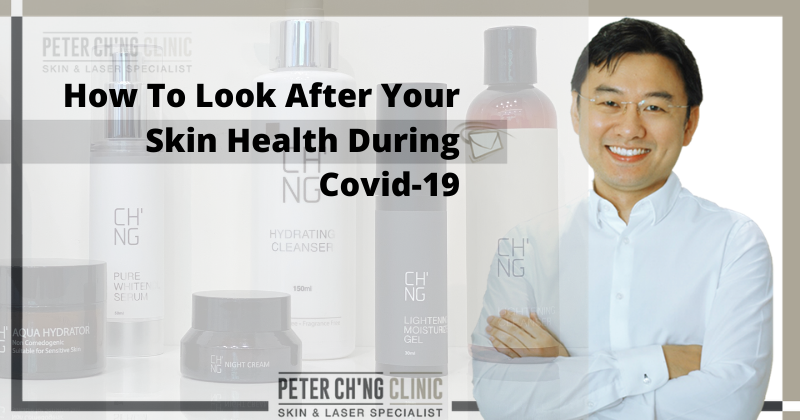
Question
Hi Dr. Peter,
My skin is starting to look dull and lackluster due to the build-up of excess dead skin cells. This is because I have missed my regular laser treatments and facials. In addition, as someone with sensitive skin, I have patches of acne breakout along my jawline.
To make things worse, I am prone to pigmentation and I can also see mild darkening on my cheeks. Now that we are sheltered in, could you advise how best I can look after my skin at home? Thank you.
Answer
No one could imagine that the Coronavirus would change the lives of the world’s population in just three months. During this period where our lives are nothing but regular, it is normal to feel anxious. It is also during this time when you will notice some of the effects of not having your routine aesthetic treatments showing on your skin.
Thankfully with medical advancements, today’s skincare products can do so much more than just hydrate. The right skin care product can help you “buy” some time, and maintain your skin health until your next visit to the dermatologist or medical practitioner. A core, skincare routine that caters to your skin type is essential to maintain optimal skin health.

So here are some tips on how you can look after your skin health, based on your skin type in the confines of your home.
1. Moisturizing Products for Sensitive Skin
Individuals diagnosed with eczema or rosacea tend to have sensitive skin. The commonest cause of sensitive skin is eczema. People with sensitive skin may also present with very dry skin or flushed red cheeks.
If you have sensitive skin, you must use moisturizing products. Your skincare regime should include moisturizing facial products and body washes. As the skin on our face is thinner compared to our body, you should use a separate body wash specific for your face and body.
Patients with dry skin and eczema will need to constantly hydrate their skin. Be diligent in applying a day moisturizer which has a lighter texture and a night moisturizer just before sleeping.
To the untrained eye, choosing a suitable skincare product can be a daunting task. Marketers use “keywords” that make us believe a product is superior and ideal for our skin. Words such as “natural, organic, stem cell, vitamin C, or aloe vera-enriched” are prominently displayed on skincare packaging. While these words suggest the promise of brighter, clearer skin, do not be misled by these marketing gimmicks. Instead, choose products that suit your skin type. For sensitive skin, this means choosing preservative-free and fragrance-free products that will not irritate the skin.
2. Acne-Line Products for Acne-Prone Skin

If you have oily skin and have temporarily stopped treatment due to the movement control order, your acne may reoccur. To prevent this, you must stay on top of your skincare regime and religiously use a range of skin care products specifically for acne-prone skin.
Your complete acne-range skincare line begins with a cleanser, followed by moisturizer and finally an acne lotion.
Oily skin and pigmentation-prone skin is a type of chronic disease that requires maintenance treatments of topical. As a dermatologist, we strongly believe that a good skincare routine plays a significant role in maintaining your skin health, beyond medical treatments.
Skincare has its role and importance. And you should internalize this habit of taking care of your skin at home, with or without Covid-19.
3. Lightening Products for Pigmented Skin

For pigmented skin, step up your skincare health by fastidiously applying lightening products. These products will help to inhibit melanin production. In return, you can maintain a spot-free complexion until your next visit to your skin specialist.
If you are using an over-the-counter (OTC) skin lightener, do check the ingredient label. The majority of OTC skin lightening creams contains hydroquinone.
However, as a dermatologist, I do not prescribe hydroquinone at all. Simply because any prolonged use of hydroquinone can cause the formation of another pigmentary disease known as Ochronosis. Ochronosis is characterized by bluish-black discoloration due to the long term use of hydroquinone.
Besides, avoid applying skin bleaching products or products with mercury content on your skin. These products will trigger an allergic reaction in patients with sensitive skin, induce mercury toxicity, and cause skin inflammation.
As for sunscreen, I am sure most of us are indoors and shaded away from the sun. Unless your house is built in an open concept with sun penetrating through glass windows and doors, then sunscreen is generally not needed.
However, when you do light stretching and exercise in your garden, make sure to apply sunscreen with SPF50++. This gives you maximum protection against ultraviolet rays that cause aging (UVA) and ultraviolet rays that cause burning (UVB).
Keeping our body active with light exercise is crucial to strengthen our immune system. With a little creativity and some inspiration harnessed from YouTube and other social media platforms, you can find an exercise program to do at home, within your house compound, or at your condo balcony. Remember to abide by the Movement Control Order by not jogging or walking in or around the park, so that we can flatten the curve together.
4. Finally, Don’t Wear Makeup When You Wear A Mask
If you have to go out for grocery shopping, put on a surgical mask.We, however strongly advise that you do not put on makeup while wearing a mask. Simply because the oil from your cosmetic products and excess sebum from your skin will get trap in the mask. These elements are in contact with your skin as long as you have the mask on.
Poor ventilation, clogged pores, and excess oil is the perfect breeding ground for bacteria to breed and acne to form. It is therefore common to develop blemishes at the cheek and along the jaw, due to wearing the mask.
So when you have to put on a surgical mask, try not to put on makeup. After all, when you have a mask on, nobody will notice your make up, or your complexion!
5. Lifestyle Tips During Covid-19 For Better Skin and Mental Health
Social distancing, community quarantine, lockdown, and movement control order were terms alien to us before. Now, we use these words ever so freely as the world unanimously adopts varying degrees of movement control to combat the spread of Covid-19.
Strip off the hustle and bustle of daily life, this slower pace is a breath of fresh air that lets us do things we never had the time for previously. Take this opportunity to learn a new language or skill. Spend more time with your kids and loved ones. Play chess with your children, teach them a new board game and keep them occupied. Brush up on your cooking skills and unleash the inner chef in you. Up-skill and sign up for online courses to improve your corporate worth during this period.

And of course, get plenty of sleep. Adequate sleep ensures that your immunity is in prime condition to ward off germs and diseases.
When it comes to food intake, eat healthily and opt for fresh food. Load up on veggies, greens, and fruits. A lot of you may have stocked up on can food, sausages, instant noodles and other types of processed food. Eat these sparingly as the high levels of sodium, preservative, and fat in processed food can lead to other health issues. Let’s try not to trigger diet-related non-communicable diseases like obesity, high blood pressure, and heart disease during this period.
Conclusion
Being at home and not being able to get your regular aesthetic treatments can be despairing for some of us too. But fret not as you can maintain your skin in its pristine condition until your next visit by following these simple tips we shared.
Should you wish to enquire more about our skincare products during this period, please do not hesitate to call or WhatsApp us at 011-2288 2299. Alternatively, drop us an email at info@peterchngskinspecialist.com We are happy to take your calls and your orders in the comfort of your home.

If you’d like to ask more about your skin condition or have a discussion with Dr Peter, you can contact us at +6011-22882299, Whatsapp us, or book an appointment with Dr Peter here!
Treatments mentioned in this article :
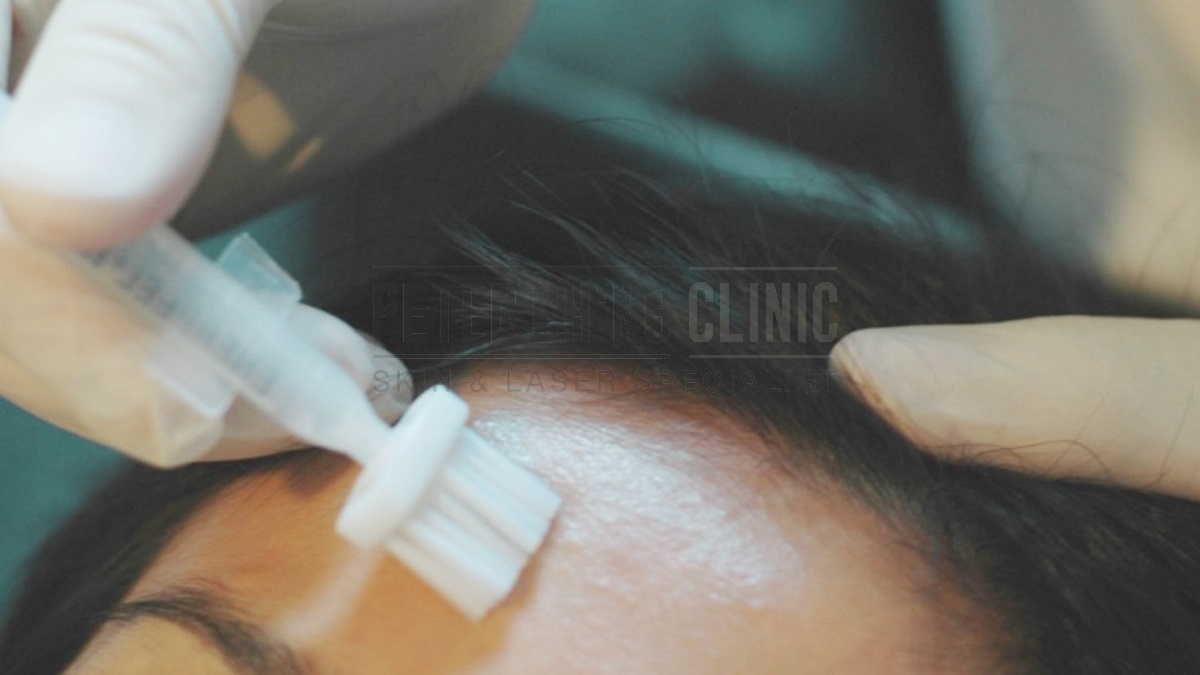
Chemical Peel
Chemical peels are acids that are applied on the skin to cause the skin to peel. This process stimulates the skin cells to regenerate faster and thus fastening the process of skin healing.
Laser Treatments for Acne and Acne Scars
Laser treatments can reduce inflammation, as the laser light is absorbed by the haemoglobin (our red blood cells), and is useful for treating inflammatory acne.
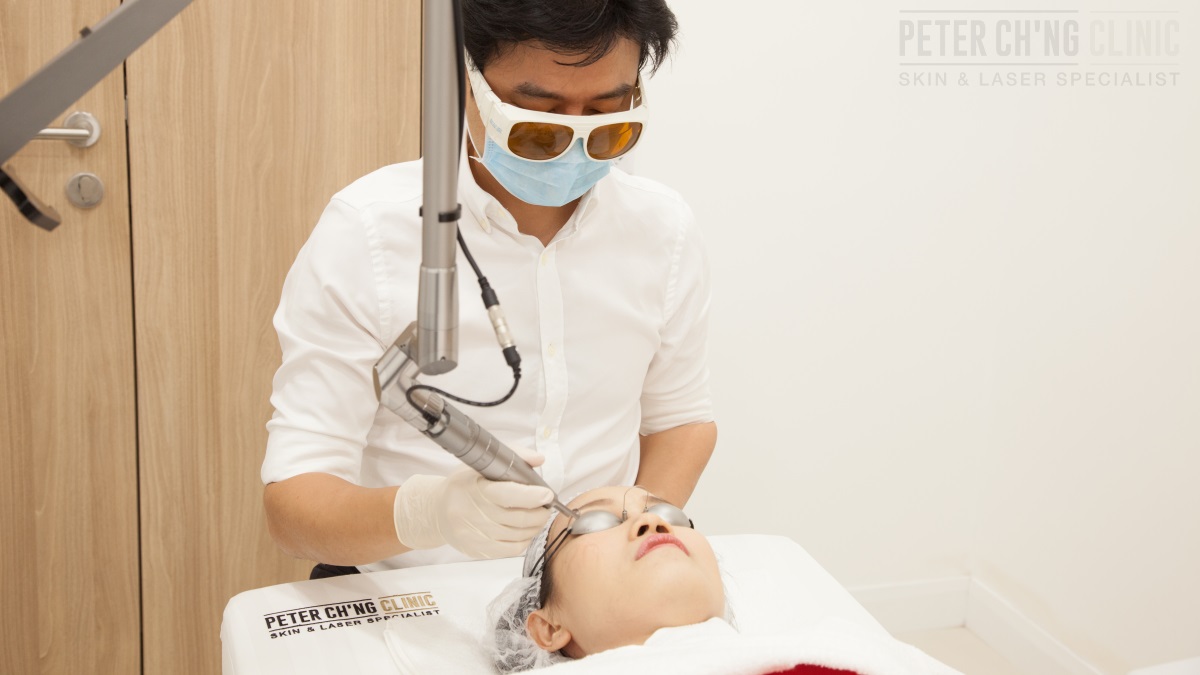
Pigment Laser
Laser treatments are always one of the most effective treatments to get rid of pigmentation on the skin. Pigment lasers can penetrate deep into the skin and remove the pigments beneath the skin to make the spots on the skin surface disappear.
